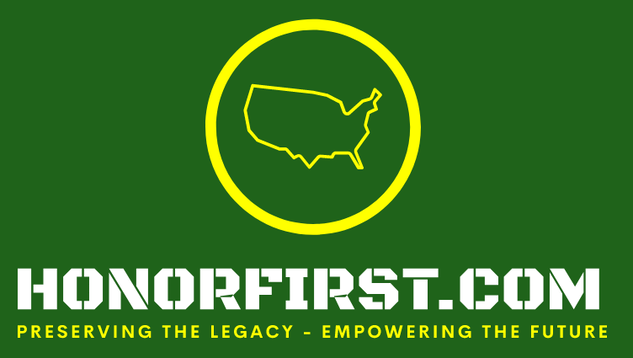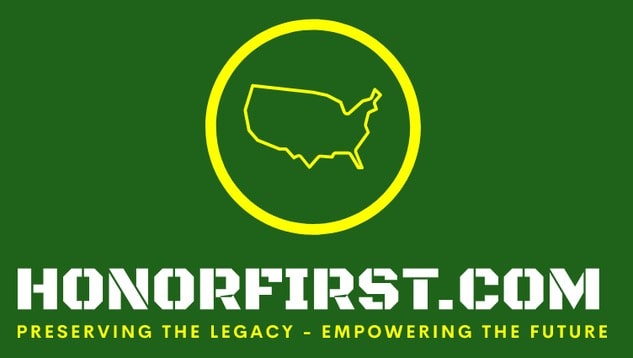Honor First
and
Esprit De Corps
Honor First
"Honor First" serves as the cornerstone of the United States Border Patrol's ethos, deeply embedded within its traditions and culture. This motto emphasizes the significance of integrity, a core value shared by the organization and its members. Integrity encompasses various traits such as honesty, good character, principles, ethics, morals, righteousness, virtue, decency, fairness, sincerity, truthfulness, and trustworthiness, which collectively define honor.
In both organizational and individual contexts, "Honor First" represents the commitment to uphold integrity while adhering to established laws, regulations, directives, policies, and rules—even in challenging situations. Organizations and individuals who embody "Honor First" may occasionally approach these boundaries but will promptly self-correct. Conversely, those with questionable integrity, who do not exemplify "Honor First," will persistently test these limits without self-correction.
The motto "Honor First" is believed to have originated from the El Paso District in 1926, which, at the time, encompassed what are today known as the Tucson, El Paso, and Big Bend Sectors. This broader geographical influence is substantiated by a 1929 Immigration Service Index, a digital copy of which can be viewed here. This index card reveals that the El Paso District had submitted a list of proposed Border Patrol mottos in that year. The earliest documented mention of "Honor First" appears in the 1927 report from the Commissioner General of Immigration to the Secretary of the Department of Labor, detailing activities for the fiscal year from July 1926 to June 1927. The full report is available here.
In both organizational and individual contexts, "Honor First" represents the commitment to uphold integrity while adhering to established laws, regulations, directives, policies, and rules—even in challenging situations. Organizations and individuals who embody "Honor First" may occasionally approach these boundaries but will promptly self-correct. Conversely, those with questionable integrity, who do not exemplify "Honor First," will persistently test these limits without self-correction.
The motto "Honor First" is believed to have originated from the El Paso District in 1926, which, at the time, encompassed what are today known as the Tucson, El Paso, and Big Bend Sectors. This broader geographical influence is substantiated by a 1929 Immigration Service Index, a digital copy of which can be viewed here. This index card reveals that the El Paso District had submitted a list of proposed Border Patrol mottos in that year. The earliest documented mention of "Honor First" appears in the 1927 report from the Commissioner General of Immigration to the Secretary of the Department of Labor, detailing activities for the fiscal year from July 1926 to June 1927. The full report is available here.
|
The border patrol is a young man's organization; it appeals strongly to the lover of the big outdoors—the primeval forests, the sunparched deserts, the mountains, and the plains; the business upon which it is engaged calls for manhood, stamina, versatility, and resourcefulness in the highest degree. "Honor first" is its watchword; privations and danger but serve as a challenge which none refuses. Unfailing courtesy to all, and helpfulness to the helpless in distress, are emphasized above every other requisite. These young men are proud of their jobs—proud of their organization—with a code of ethics unsurpassed by any similar organization of this or any other day. In the three short years of its existence it has created a priceless store of traditions. The pride of these men in their organization is equaled only by the pride and esteem in which they are held by the communities in which they operate. Spontaneous testimonials of this esteem are being constantly received by the bureau. To an almost unbelievable extent the border patrol is self-governing. Its members must be left largely to their own devices and upon their honor. The weight of popular disapproval of his fellow officers is more potent with the erring one than all the printed regulations humanly possible to devise. The uniform is sacred; it not only symbolizes authority, the law's majesty and all the power of the Federal Government, but it entails obligations upon the wearer in the way of deportment which are intuitively recognized and scrupulously observed.
|
The United States Border Patrol officially trademarked the phrase "Honor First" on August 17, 2010, and subsequently renewed the trademark in 2019.
A 1928 document from the San Antonio District, which includes the modern-day Rio Grande Valley, Laredo, and Del Rio Sectors, outlines 40 suggestions intended to guide early Border Patrol Inspectors. Many of these suggestions emphasize the importance of integrity.
In a 1930 selection letter addressed to new Border Patrol Inspectors in the El Paso District—comprising today's Tucson, El Paso, and Big Bend Sectors—"Honor First" was presented as both an organizational value and a watchword. New hires were explicitly instructed to resign immediately if they could not adhere to this principle.
The Border Patrol takes great pride in its Esprit de Corps. In 2016, employees at the Border Patrol headquarters developed the following definition to encapsulate this spirit:
A 1928 document from the San Antonio District, which includes the modern-day Rio Grande Valley, Laredo, and Del Rio Sectors, outlines 40 suggestions intended to guide early Border Patrol Inspectors. Many of these suggestions emphasize the importance of integrity.
In a 1930 selection letter addressed to new Border Patrol Inspectors in the El Paso District—comprising today's Tucson, El Paso, and Big Bend Sectors—"Honor First" was presented as both an organizational value and a watchword. New hires were explicitly instructed to resign immediately if they could not adhere to this principle.
The Border Patrol takes great pride in its Esprit de Corps. In 2016, employees at the Border Patrol headquarters developed the following definition to encapsulate this spirit:
Esprit de Corps
|
The workplace climate resulting from a combination of organizational pride and employee morale.
|
The definition turns Esprit de Corps into a simple formula and defines parts that comprise organizational pride and employee morale.
Esprit de Corps = Organizational Pride + Employee Morale
Esprit de Corps is the key to a healthy organization and engaged employees.
Honor First is foundational to the Border Patrol's organizational pride and integral to its Esprit de Corps.
Honor First is foundational to the Border Patrol's organizational pride and integral to its Esprit de Corps.
Please send comments, questions and submissions to [email protected].
Help spread the word!

